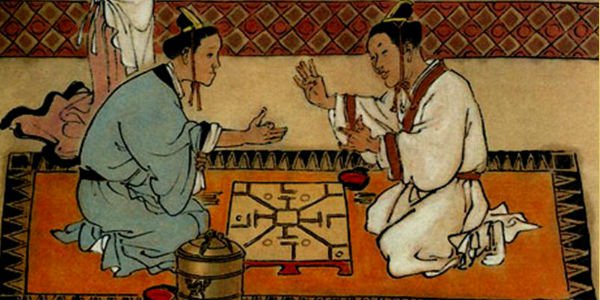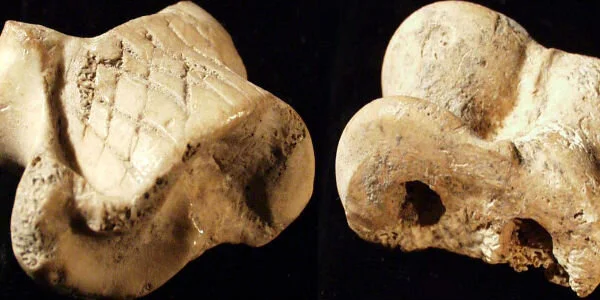- The History of Ancient Gambling Gambling was present in almost every major, ancient civilization. From the Mesolithic rolling of hucklebones, to the Mesopotamian invention of the six-sided die, and finally to the Chinese invention of the card, not only did gambling survive through countless civilizations of ancient history, it evolved into a global phenomenon.
- The Ancient Gods of Gambling Explained Thoth – The Egyptian God of Gambling. Everyone is pretty familiar with ancient Egyptian mythology. But, not many people. Hermes – The Greek God of Gambling. Since we have already mentioned, Hermes is known for benign te god’s messenger.
Since time immemorial, human beings have been drawn to the lure of predicting the unpredictable and placing money on the outcome. The history of gambling stretches back thousands of years, offering disconcerting parallels between the games of chance played by the ancient Greeks, and the $70 billion daily fantasy sports leagues that tens of millions of people play on their lunch breaks every day.


Our editors will review what you’ve submitted and determine whether to revise the article.
Join Britannica's Publishing Partner Program and our community of experts to gain a global audience for your work!Gambling, the betting or staking of something of value, with consciousness of risk and hope of gain, on the outcome of a game, a contest, or an uncertain event whose result may be determined by chance or accident or have an unexpected result by reason of the bettor’s miscalculation.
The outcomes of gambling games may be determined by chance alone, as in the purely random activity of a tossed pair of dice or of the ball on a roulette wheel, or by physical skill, training, or prowess in athletic contests, or by a combination of strategy and chance. The rules by which gambling games are played sometimes serve to confuse the relationship between the components of the game, which depend on skill and chance, so that some players may be able to manipulate the game to serve their own interests. Thus, knowledge of the game is useful for playing poker or betting on horse racing but is of very little use for purchasing lottery tickets or playing slot machines.
A gambler may participate in the game itself while betting on its outcome (card games, craps), or he may be prevented from any active participation in an event in which he has a stake (professional athletics, lotteries). Some games are dull or nearly meaningless without the accompanying betting activity and are rarely played unless wagering occurs (coin tossing, poker, dice games, lotteries). In other games betting is not intrinsically part of the game, and the association is merely conventional and not necessary to the performance of the game itself (horse racing, football pools). Commercial establishments such as casinos and racetracks may organize gambling when a portion of the money wagered by patrons can be easily acquired by participation as a favoured party in the game, by rental of space, or by withdrawing a portion of the betting pool. Some activities of very large scale (horse racing, lotteries) usually require commercial and professional organizations to present and maintain them efficiently.
Prevalence of principal forms
A rough estimate of the amount of money legally wagered annually in the world is about $10 trillion (illegal gambling may exceed even this figure). In terms of total turnover, lotteries are the leading form of gambling worldwide. State-licensed or state-operated lotteries expanded rapidly in Europe and the United States during the late 20th century and are widely distributed throughout most of the world. Organized football (soccer) pools can be found in nearly all European countries, several South American countries, Australia, and a few African and Asian countries. Most of these countries also offer either state-organized or state-licensed wagering on other sporting events.
Betting on horse racing is a leading form of gambling in English-speaking countries and in France. It also exists in many other countries. Wherever horse racing is popular, it has usually become a major business, with its own newspapers and other periodicals, extensive statistical services, self-styled experts who sell advice on how to bet, and sophisticated communication networks that furnish information to betting centres, bookmakers and their employees, and workers involved with the care and breeding of horses. The same is true, to a smaller extent, of dog racing. The emergence of satellite broadcasting technology has led to the creation of so-called off-track betting facilities, in which bettors watch live telecasts at locations away from the racetrack.
Casinos or gambling houses have existed at least since the 17th century. In the 20th century they became commonplace and assumed almost a uniform character throughout the world. In Europe and South America they are permitted at many or most holiday resorts but not always in cities. In the United States casinos were for many years legal only in Nevada and New Jersey and, by special license, in Puerto Rico, but most other states now allow casino gambling, and betting facilities operate clandestinely throughout the country, often through corruption of political authorities. Roulette is one of the principal gambling games in casinos throughout France and Monaco and is popular throughout the world. Craps is the principal dice game at most American casinos. Slot and video poker machines are a mainstay of casinos in the United States and Europe and also are found in thousands of private clubs, restaurants, and other establishments; they are also common in Australia. Among the card games played at casinos, baccarat, in its popular form chemin de fer, has remained a principal gambling game in Great Britain and in the continental casinos most often patronized by the English at Deauville, Biarritz, and the Riviera resorts. Faro, at one time the principal gambling game in the United States, has become obsolete. Blackjack is the principal card game in American casinos. The French card game trente et quarante (or rouge et noir) is played at Monte-Carlo and a few other continental casinos. Many other games may also be found in some casinos—for example, sic bo, fan-tan, and pai-gow poker in Asia and local games such as boule, banca francesa, and kalooki in Europe.
At the start of the 21st century, poker exploded in popularity, principally through the high visibility of poker tournaments broadcast on television and the proliferation of Internet playing venues. Another growing form of Internet gambling is the so-called betting exchanges—Internet Web sites on which players make wagers with one another, with the Web site taking a small cut of each wager in exchange for organizing and handling the transaction.
In a wide sense of the word, stock markets may also be considered a form of gambling, albeit one in which skill and knowledge on the part of the bettors play a considerable part. This also goes for insurance; paying the premium on one’s life insurance is, in effect, a bet that one will die within a specified time. If one wins (dies), the win is paid out to one’s relatives, and if one loses (survives the specified time), the wager (premium) is kept by the insurance company, which acts as a bookmaker and sets the odds (payout ratios) according to actuarial data. These two forms of gambling are considered beneficial to society, the former acquiring venture capital and the latter spreading statistical risks.
- key people
- related topics
China
No matter the millennium, China has always harbored a culture of gambling. Currently, it can be seen in the exploding gambling culture in their Macau region, and you can also find some ways to gamble in Hong Kong, but thousands of years ago, they were doing their best to revolutionize gameplay too. Some even believe that gambling even began in China! It can be traced all the way back to the Xia Dynasty, which took place between 1900 and 1600 B.C. Because of the fickle nature of gambling and its ability to bring power and stability to its knees if not played responsibility, gambling activities were mostly banned in the country. Still, that wouldn’t stop the ancient Chinese. It became so difficult to keep under control that the government finally caved and legalized it. They were some of the first to see the benefits in its taxation, and they reaped fortunes from their citizens.
You might be surprised to learn that many of the casino games we know and love today originated in China. As the inventors of playing cards, variations of games such as blackjack, poker and keno are said to have come from the ingenuity of the Chinese. Many of these games were created in the Tang Dynasty around 900 A.D. and relied on special playing cards as being not just the tools to play the game, but also a paper currency that held a material value outside of the game too. If that wasn’t enough, the Chinese were to create the first tile games, which is the ancient ancestor of today’s dominoes game.
Mesopotamia and Ancient Egypt
As some of the oldest civilizations known to current scientific studies, remnants of Mesopotamia and Ancient Egypt contain the oldest evidence of gambling yet to be found. Although we can make guesses as to how these certain artifacts were truly used, it is believed by a broad consensus that they were instruments for good old-fashioned wagering. For example, a number of four-sided Astragli, also known as knucklebones, have been unearthed. As the precursor to our modern dice, the found Astragli have been made from materials as varied as wood, metal, and stone.
These strange instruments weren’t necessarily used how we would use dice though. Initially, it is believed that they were used to communicate with Gods, or rather, that Gods were believed to have communicated through them. By asking questions and rolling them, the answer would reveal what the Gods were supposedly thinking. In 2012, an Astragli was found with 20-sides, the purpose for it yet to be discovered. Perhaps they believed that four answers from the all-seeing Gods were not enough.
But it wasn’t just for religious reasons that the tools were used. The Egyptians also utilized them for different games, including the board game Senet. As the first board game of its kind in known-existence, the rules of Senet are still argued about today. Luckily for historians, more can be said for the Game of Ur, a board game found in Iraq’s Royal Tombs of Ur in the 1920s that although comes from an ancient time, is still at least 900 years younger than Senet.
The Americas
Being the continent on which the fascinating Mayan and Inca thrived and fell, it’s surprising how little knowledge has been preserved of the ancient civilizations of the Americas. It was known for some time that they had their own version of dice games, but what these were exactly no one can surmise. It wasn’t until 2010 that an archaeologist discovered an ancient scoreboard that she believed to be for scoring dice. At 5,000 years old, it is the oldest and perhaps most significant evidence for early games in the Americas that has been found.
Another Ancient American game, Patolli, was a two-player board game that saw each player place six markers that represented an individual wager of a high valued item, which they would play one by one until a single player would come out victorious. Lower stakes games could include food, jewelry or personal valuables, but there is evidence of high-stakes games being played that saw contestants bet their homes, wives and even their freedom! It is a far cry from its descendant Ludo, but it must have made for an extremely entertaining watch.

Things have changed a lot over the years, with the current United States gambling laws still in a state of constant flux. If you want to have a look at what games you can legally wager on and where you can place bets, check out our guide to gambling in the USA.
India
In modern India, gambling tends to be looked down upon as being both morally wrong, with laws reflecting this attitude too. You can read our India gambling page to see what forms of betting are legal and popular. However, at one point gambling was a prevalent facet of India’s ancient civilization. Hindu texts dating from 2000 B.C. specifically mention gambling games, namely the Mahabharata, an epic myth that features a game of dice that acts as a major plot twist in the story. It is this game of dice which results in the story’s Pandavas brothers losing their kingdom and power. They are then exiled and their wives are humiliated in court by their rivals, the Kauravas, which provokes the God Krishna to intervene and save the wives. So influential was this game of dice that it even led to an epic battle.
It may seem as though that gambling was used here as a plot device to show it’s amorality, but there’s more to the story. As the epic unfolds, it is revealed that the Kauravas were convinced into playing dice with the Pandavas as an act of revenge, the schemer the Kauravas’ uncle who predicted that the game would ultimately lead to a battle which they would surely lose, which they did. Ultimately, gambling per se is not portrayed as an unacceptable activity, rather, its the use of it as a means of trickery that is.
As well as this, both of India’s most significant festivals, Holi and Diwali, tend to facilitate the most gambling activity in the year. The festivals are traditionally celebrated as the welcoming of new phases, both marking seasonal shifts that are believed to bring in revived fortunes. Diwali, in particular, is believed to be favored by Lakshmi, the Goddess of Wealth, and so many Indians find that this day is the best to gamble. Although it’s easy to interpret this as exploiting a blessing for personal gain, there is historical evidence that suggests that in fact, gambling activities were also used to end disputes between two opposing factions.
Ancient Roman Gambling
Rome and Greece
Known for their love of hedonistic living and vice, both the Ancient Greeks and Romans were keen gamblers, to say the least. A game that transcended both civilizations was the game of Par Impar. The modern game of Odds and Evens is extremely similar – you take two players, with one hiding a number of objects in their closed fists. The other player then has to guess whether the number of items was odd or even, and if they guessed it correctly then presto! They’d win a small wager.

The Ancient Greeks were also known to be fans of dice games that wagered on luck. They even had their own versions of what we’d call casinos today – special places where people could meet and gamble. In saying that, those places didn’t have the same level of prestige as the modern casino has today, with most looking down on the people who would use them. Like going to a brothel in many countries today, being caught in one would be enough to give a high-standing member of society an ill reputation.
Even ancient Greek mythology wasn’t immune to these games – in some stories it is said that the Universe was split because the Gods played a game of dice. Hades was said to have the worst throw against Zeus and his brothers, and thus he was gifted with the Underworld. With luck being a center point to their beliefs of the Universe’s conception, it’s no wonder why they placed so much value on them.
Ancient Egyptian Gambling
Although gambling was strictly prohibited in ancient Rome, an annual Saturnalia Festival saw gambling allowed for one night. In saying that, all customs and laws were turned askew for this particular night – as it was a night when masters would serve slaves and partying would replace conservative civility. It’s allowance on this night just goes to show how debased they considered gambling to be.
Regardless, it didn’t stop them, as many Roman civilians tended to gamble in secret of the authorities. Because of its illegality, it allowed for cheating to become so ingrained in gambling culture as one could not be reported to if they were being dishonest. A notable representation of this phenomena was found in graffiti in the ruins of Pompeii, where a number of gamblers wrote phrases like, “I am skilled enough to win without cheating.”
Outside of the plebiscites, a number of Roman emperors are reported to have been keen gamblers. Both Augustus and Nero were, in fact, famous for it, despite Augustus admitting himself that he was never quite successful. But neither of them had nothing on Emperor Commodus, whose love for the sport became so out of hand that he not only gambled the state treasury away but turned his royal palace into a casino to try to recoup the losses! And they wonder why Rome fell…
